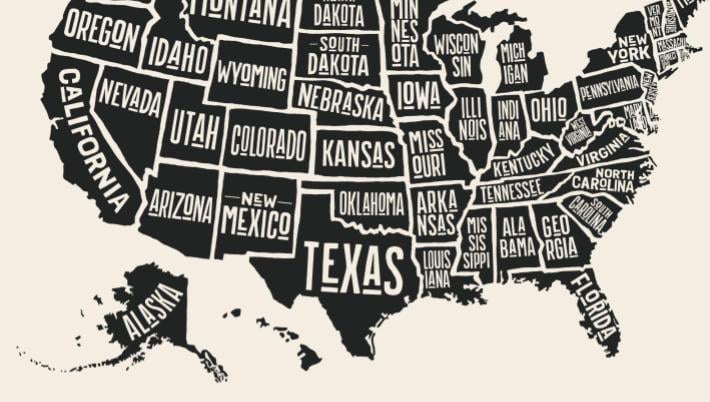Over the last 4 years over 30 US states have legalized sports betting in one form or another. Some states allow sports betting only at retail casinos while others have legalized Vegas casino online real money and mobile sports betting and/or both retail and online sports betting.
Sports betting has a way to go to get up and running in some states while in other states the issue continues to be debated. Some updates?
Kansas
Kansas passed legislation to legalized sports betting last year but the mechanics of how and when have been left up to the Kansas lottery which is making no promises about whether the new NFL season will see legalized sports betting.
Kansas Lottery Public Information Officer Cory Thone will only say that, “It is moving. It’s moving forward, but the biggest thing for us and everyone is we want the product to be functional, secure and safe to use. We obviously don’t want it to launch and then go down.”
The law that created sports betting in the state set out deadlines for implementation but some of those deadlines are nearing with no indication that they will be met. These include a requirement to have a process in place for background investigations on sportsbook platforms, a requirement that there be a draft of regulations to oversee sports betting and an agreed-upon process to approve sportsbook platforms.
There are four state-owned casinos in Kansas that are ready to partner with sportsbook platforms for a launch of retail and mobile sports betting in Kansas but sports fans may have to pass up the opportunity to place wagers on the first Fall 2022 NFL games as the bureaucracies plod ahead more slowly than the legislature had directed. The Hollywood Casino at the Kansas Speedway may open a temporary sportsbook in September in time for the NASCAR race there.
Sports betting Kansas is expected to be fully operational, one way or another, by January 2023.
Massachusetts
A group of Beacon Hill lawmakers have been doing their best to get sports betting legislation passed for Massachusetts throughout the year but in the end, those efforts, along with the urgings of Governor Charlie Baker, weren’t enough to get the bill passed before the end of the legislative year.
Baker has been vocal in his support of sports betting legislation and but despite the passage of a bill last summer by the Massachusetts House of Representative that would legalize sports betting in the state, House sports betting supporters could not come to a compromise agreement with the state’s Senate whose own sports betting bill doesn’t allow collegiate sports betting.
That, along with other key differences such as tax rates and consumer protections, doomed the bill for this year. Massachusetts House Speaker Ronald Mariano, a supporter of the House sports betting bill, says that by disallowing wagering on college sports, the state would face an unregulated black market that would undercut state-sponsored sports betting.
“I think there’s an opportunity to include college sports, rather than let it be only handled by bookies. I mean, I don’t understand if you’re going to do sports betting why you would leave out Final Four bowl games and the whole college football season. It doesn’t seem to be worth doing if you’re going to leave those.”
California
The question of whether to allow online sports betting in California will decided by voters this November after sportsbook operators gathered enough signatures to add the referendum to the ballot. To make things even more complicated a coalition of California tribes got enough signatures to put the question of whether to allow wagering at racetracks and retail casinos.
The tribes operate all of the California casinos and have already said that if voters vote “yes” to both proposals, or vote “yes” to online betting, they will challenge that result in court.
The coalition of California tribes, the Californians for Tribal Sovereignty and Safe Gaming, is determined to protect tribal gambling interests and, say their opponents, is engaging in “fearmongering” to convince Californians to vote “No” to the proposal which is being put forth by sportsbook operators. The two sides are investing millions of dollars in competing ads as they prepare for the November vote.
According to analysts, the two sides will be spending an approximate $300 million to garner support for their measures while each attacks the rival campaign. That would make it the most expensive fight for a ballot measure in California’s history.
The operators argue that their measure will not only allow access to online betting in California but will, in fact, benefit the native American community in California by enabling every tribe – not just those with casinos located near big cities – to benefit from the industry.
To complicate matters a third campaign which was launched by a different coalition of California tribes wants the first two propositions to be defeated. This new coalition has plans to add its own ballot measure to the 2024 ballot that proposes a different sports betting framework for the state.
All of the propositions present theirs as THE ONE that will be the most likely to keep sports-betting Californians safe.


